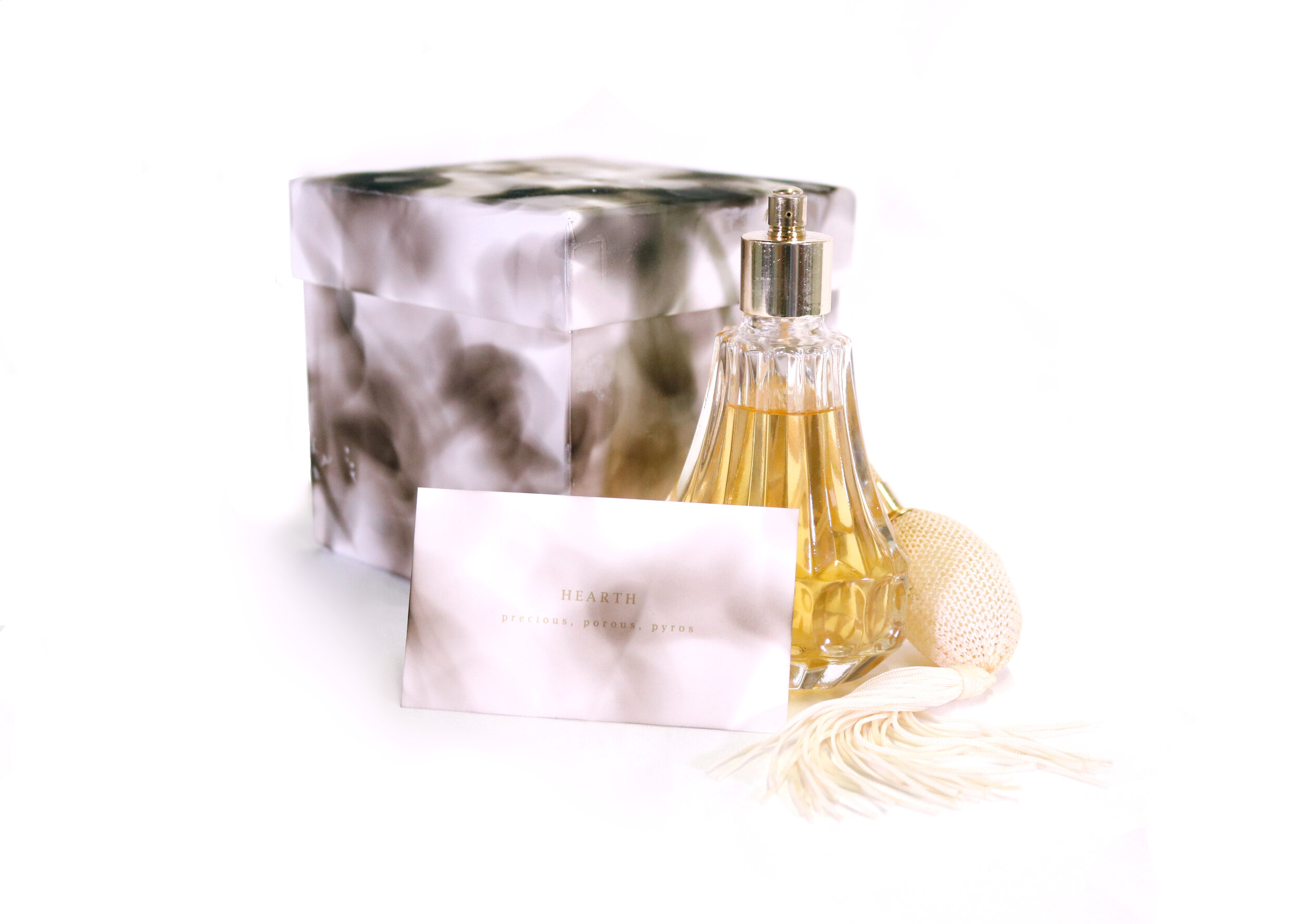Hearth, 2021
Scent is the sense most tied to memory, taking the shortest synaptic pathway in the brain from signal to memorial response. Scent quickly bridges our environment with a sense of intimacy. Charcoal, like scent, is tied to memory: the leftover carbon from incomplete combustion of organic materials. Often used to date forest fires, I consider charcoal as a recollection of an ecological violence many view as long off, but in reality burns hot in our backyards. In my perfume Hearth, I examine how a sense of intimacy can create an environmental ethic of responsibility. Charcoal and charred wood from a local forest fire is seeped in oils and alcohols for several days to pull out its chemical essence. The resulting perfume mixture is presented through tropes of luxury fragrances: hand decorated boxes, gilded and overly enigmatic texts, and velvet beds for each small glass perfume bottle. However the interaction with this work breaks down the goal of most perfumes: to cover up. The smoke patterns on the exterior are ephemeral, and soon the marbled pattern is replaced with fingerprints, and the pure white interior is ash stained from repeated use. The subtle scent of the perfume itself becomes an adornment with waste and violence, creating an unavoidable intimacy with ecological destruction. Thus the far off idea of climate change enters into the hearth of home, demanding a tending to a roaring fire.


